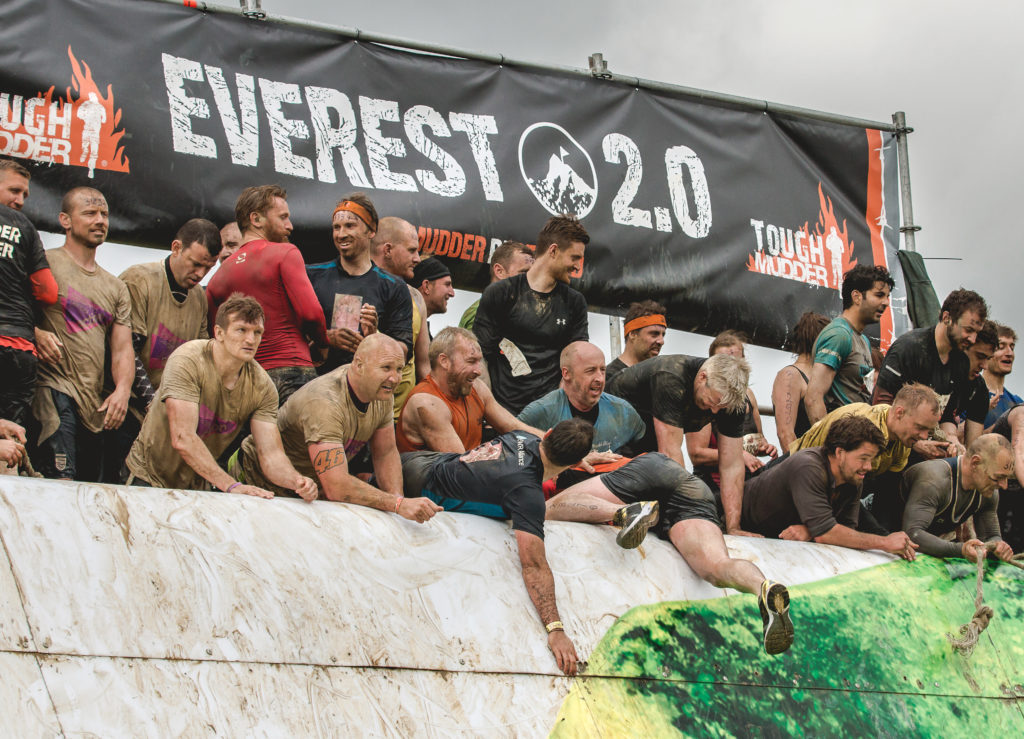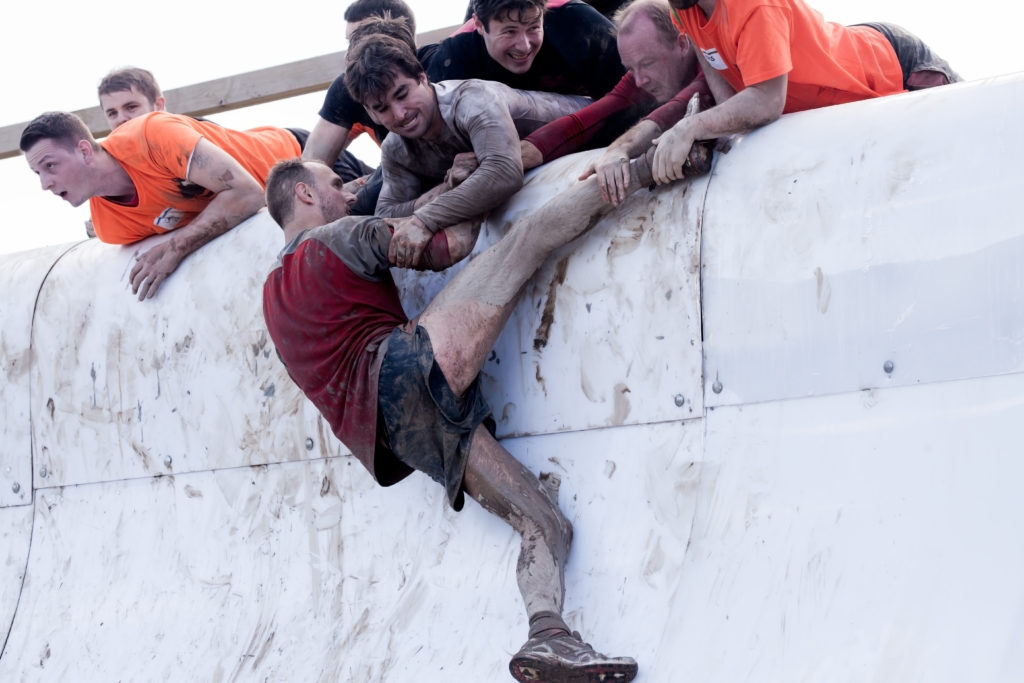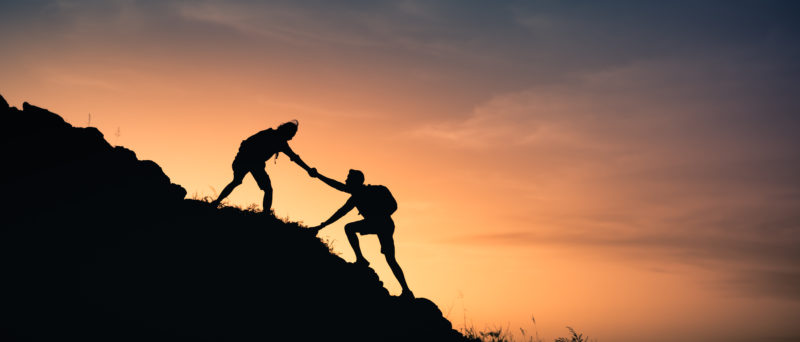Miller Family Message by Brilliant Miller –
A few years back, I participated in an extreme endurance sporting event called Tough Mudder in Utah’s West Desert on a cold and rainy October day.
After swimming through ice water, crawling through 30 yards of mud with electrified wires, and overcoming other difficult obstacles, I approached the Everest Wall, a slick quarter pipe 15 feet tall. It was one of the last obstacles, and for how daunting it was, it might as well have been the real Mount Everest.
To scale it, participants got a running start, getting as high as possible before launching to grab the lip of the wall, or the muddy hand of another participant who was waiting to help them up.

By the time I reached it, I was spent. The soles of my shoes were muddy, I felt sure I would slip the moment I stepped on the wall’s slick surface. I could see myself sprinting toward the wall, launching, slipping, and knocking out my two front teeth.
I shook that image, readied myself and ran for it. I managed to avoid knocking my teeth out, but my fear prevented me from really going for it. Holding myself back, I was close, but it wasn’t enough. Each successive attempt consumed a bit more energy, and I leapt a little lower each time.
Steeling myself, I gave it another go. This time, I got high enough to grab someone’s hand. Or, more accurately, someone grabbed mine.
I didn’t have enough strength to pull myself up, but I did manage to swing one leg up. Somebody grabbed that leg, leaving me dangling awkwardly. Someone else reached down and grabbed my shorts. I reached the top through a combination of clambering and surrendering.

I sat on the top of that wall, humbled. I was embarrassed to have needed so much help to get there, and I was grateful to those who had helped me.
Reflecting on that experience now, I think of something my friend and mentor Marshall Goldsmith told me after he turned 70. He said that one of his life’s biggest lessons is that we all need help sometimes, and it’s okay to ask for it.
Arkan Lushwala, another of my friends and teachers, shared with me a formula used by indigenous people for generations: ask for help, receive the help, share the blessings you receive as a result of that help, offer thanks for the help. Gratitude starts the cycle over again.
It doesn’t matter how intelligent, educated, strong, skilled, talented, or connected we are, at some point we reach the limits of what we can do on our own. In those moments, when we’ve done our best and discovered it’s not enough, it’s okay to ask for help. Other times we get lost and need a bit of direction. And occasionally we even find ourselves wishing we could start over entirely.
I believe that everyone can benefit from having a mentor or coach, and that coaching is as valuable to someone who lives in poverty in a developing country as it is for a CEO of a Fortune 500 company. It can benefit a stay-at-home dad just as much as the president of a nation or a startup entrepreneur.
An effective mentor doesn’t tell you the answers—she helps you find your own answers. She honors your innate wisdom. Mentorship provides a space and a process for that wisdom to reach your awareness and then to find expression—for you to act on it.
Effective mentors are trusted advisers who help you set goals, be accountable, navigate complex situations, and encourage you as you release patterns of thought and ways of being that no longer serve you.
They help you to arrive at insights that you then integrate into your everyday life—and to find new ways of living that contribute to your health and happiness, and the contribution you make to others. So, the next time you’re feeling stuck or lost, see if your mentor can help you find your way forward.
We won’t win every race, and we won’t conquer every challenge. But I do think we can overcome every one that truly matters if we’re wise enough to ask for help when we need it—and humble enough to receive it.


Thank you so much for this! I have always struggled to accept help. It is nice to know that others feel the same way and that I am finally learning, after 40 years, it is ok to ask for help and to be grateful for it! I like being a mentor as well, experience that is shared and can be built upon is an accomplishment again!